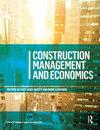Value integration in multi-functional urban projects: a value driven perspective on sustainability transitions
IF 3.3
Q2 BUSINESS
引用次数: 0
Abstract
Sustainable urban development requires the integration of diverse values to achieve multi-functional goals. Blue-Green Infrastructure (BGI) projects can be considered as pioneers in value integration. By combining bureaucratic innovations (BI) and social innovations (SI) these BGI projects are able to reach a more holistic development that is characterised as a value-driven approach for sustainability transitions. In this study on BGI projects, we aim to learn how to deliver multi-functional projects through different interpretation of four factors, i.e. professional culture, governance level, geographical space, and time conception, in various constellations of BI and SI. Results of our cross-case study of four BGI projects in three European countries (the Netherlands, Belgium and Sweden) indicate that project with higher degrees of value integration balance BI and SI in following four ways: (i) heterogeneity in professions in value-decision-making, (ii) multi-level governance embedded in institutional frameworks, (iii) connecting city-wide and neighbourhood levels by boundary spanners, and (iv) having a dynamic time conception. Our findings imply that social innovation experiences on projects has to fit into the bureaucratic environment to achieve true value integration.多功能城市项目的价值整合:可持续转型的价值驱动视角
城市可持续发展需要多元价值的融合,以实现多功能的目标。蓝绿基础设施(BGI)项目可以被认为是价值整合的先驱。通过结合官僚创新(BI)和社会创新(SI),这些华大基因项目能够实现更全面的发展,其特点是可持续转型的价值驱动方法。在对华大基因项目的研究中,我们的目标是学习如何在BI和SI的不同星座中,通过对专业文化、治理水平、地理空间和时间概念四个因素的不同解读,交付多功能项目。我们对三个欧洲国家(荷兰、比利时和瑞典)的四个华大基因项目进行了跨案例研究,结果表明,价值整合程度较高的项目在以下四个方面平衡了BI和SI: (i)价值决策专业的异质性;(ii)嵌入制度框架的多层次治理;(iii)通过边界跨越器连接城市和社区层面;(iv)具有动态时间概念。我们的研究结果表明,项目的社会创新经验必须适应官僚环境,才能实现真正的价值整合。
本文章由计算机程序翻译,如有差异,请以英文原文为准。
求助全文
约1分钟内获得全文
求助全文
来源期刊

Construction Management and Economics
BUSINESS-
CiteScore
7.50
自引率
14.70%
发文量
58
期刊介绍:
Construction Management and Economics publishes high-quality original research concerning the management and economics of activity in the construction industry. Our concern is the production of the built environment. We seek to extend the concept of construction beyond on-site production to include a wide range of value-adding activities and involving coalitions of multiple actors, including clients and users, that evolve over time. We embrace the entire range of construction services provided by the architecture/engineering/construction sector, including design, procurement and through-life management. We welcome papers that demonstrate how the range of diverse academic and professional disciplines enable robust and novel theoretical, methodological and/or empirical insights into the world of construction. Ultimately, our aim is to inform and advance academic debates in the various disciplines that converge on the construction sector as a topic of research. While we expect papers to have strong theoretical positioning, we also seek contributions that offer critical, reflexive accounts on practice. Construction Management & Economics now publishes the following article types: -Research Papers -Notes - offering a comment on a previously published paper or report a new idea, empirical finding or approach. -Book Reviews -Letters - terse, scholarly comments on any aspect of interest to our readership. Commentaries -Obituaries - welcome in relation to significant figures in our field.
 求助内容:
求助内容: 应助结果提醒方式:
应助结果提醒方式:


